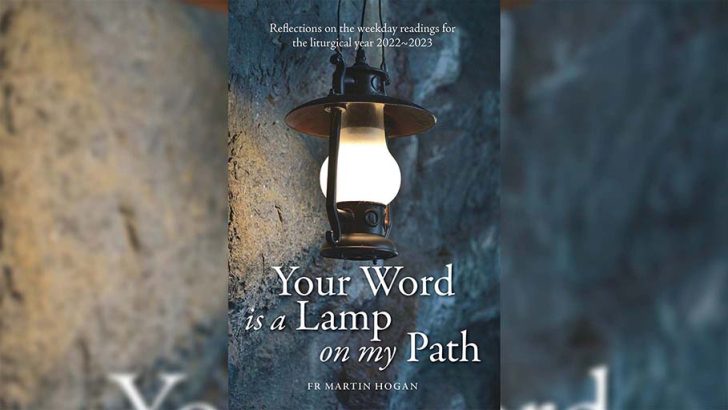“Your Word is a Lamp on my Path”: Reflections on the weekday readings for the liturgical year 2022-2023 by Martin Hogan (Messenger Publications, €19.95/£18.95)
Martin Hogan is the curate at Finglas, Finglas West and Rivermount. Readers can imagine just how busy he must be in his pastoral work. The service to the city comes after some 30 years teaching Scriptures at Mater Dei Institute of Education.
He has also written a dozen books reflecting on the daily readings at Mass. These readings are, I suspect, the main source of experience of the span of the Scriptures, so that what they hear at Mass about their meaning is very important.
It is a pity that the attendance of young people is not greater on Sundays – but then again, now the morning is the time for sport as Saturday is used for family activities. It might well be that a copy of this book left lying around the home might be casually taken up and read, with some interesting suspects, if only to enlighten students as to why the books they have for school are filled with so many echoes of the Scriptures. Indeed the Scriptures are an important element, but not the only one, in the creation of Europe’s secular culture for 2,000 years.
As Fr Hogan observes following the readings opens up many new areas of thought and belief. As the psalms say “Your word is a lamp to my feet and a light to my path.”
But if we are guiding ourselves by a lamp we have to be careful. For though the lamp light shows what is at our feet, by contrast it plunges what it does not reach, the world that surrounds us, to into even greater darkness. It is a reminder that we encounter the real world in daylight and must be even more careful.
The comments on the readings, which naturally enough begin on the first day of Advent, November 28, are not over long at all, less than a page, and can be read in a minute or two. How long it might take to comprehend the words is another matter. Absorbing the meaning of a text is often not something that should be taken for granted merely by reading through them.
However, the comments Fr Hogan offers are not intended to be the only thing that might be said. The texture of religious writing is open to very varied understandings. Readers will be encouraged by what he says to attempt to find how the readings impinge on their own lives and circumstances. Thus fruitful encounters are encouraged.


 Peter Costello
Peter Costello